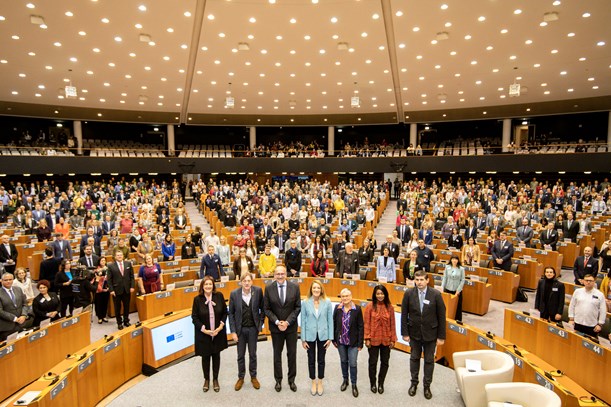2 December 2022

The European Parliament hosted the feedback event on the Conference on the Future of Europe on 2 December in Brussels, attended by representatives of the Parliament, the Council and the Commission, as well as 500 citizens. Participants examined how the European institutions are following up on the Conference proposals.
The ensuing debate focussed on the main challenges currently facing the Union, including Russia's attack on Ukraine and the consequences on the daily lives of Europeans, as well as the need to accelerate the process of EU energy independence. Emphasis was also placed on the institutional reforms needed to fully implement the Conference proposals, including those on the taxation of multinationals and cooperation in the external dimension of EU affairs.
On the other hand, citizens asked questions on the full range of topics covered in the Conference proposals, including climate change and the environment, physical and mental health, education and culture, digital transition, migration challenges, threats to European values and the EU budget, the European economy conditions and the role of young people in all these areas.
Furthermore, the prospect of launching a Convention for the revision of the Treaties was repeatedly mentioned, as well as the possible activation of so-called passerelle clauses in the existing legal framework and the need to further improve communication between the EU institutions. Some MEPs pointed out that work was underway in the parliamentary committee in order to finalise proposals for a legislative resolution to this effect. Conversely, other MEPs expressed a non-favourable view on such a convention.
The discussion also focussed on the lessons of participatory democracy learned from this unprecedented year-long exercise, including the Commission's intention to initiate consultations with citizens prior to major legislative proposals. In addition, citizens made proposals on how to ensure that all participants' voices are heard equally, despite language and structural barriers.
Conference on the Future of Europe